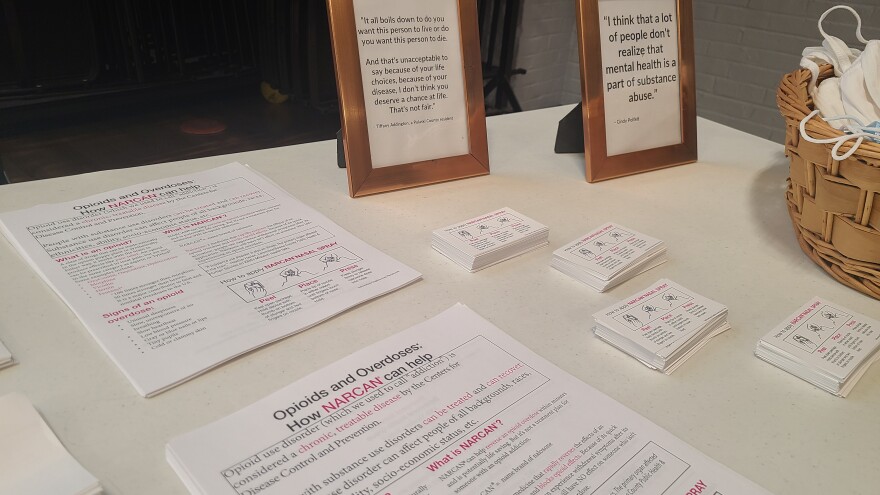KBIA partnered with the Boone County Health Department and the Boone County Overdose Response Coalition to host an event in October at Douglass High School where the community could learn about Narcan.
Narcan, the brand name for naloxone, is a lifesaving drug that can reverse an opioid overdose.
Many community members attended the event – including people who wanted to learn more about how they could help, those with personal experiences with substance use and recovery, people working in recovery locally and even members of the Columbia Police Department.
Everyone at the event had questions answered, learned about Narcan and how to use it and went home with two doses.
Opioids & Substance Use
What is an opioid? Heather Harlan, a health educator at the Boone County Health Department, has the answer.
Heather Harlan: "Next time you use some salt, put some on your hand and imagine trying to count out about 10 to 12 grains of that salt. That's how much fentanyl is a lethal dose."Good Samaritan Law
One of the common fears about overdoses is that people will get in trouble if they call for help, which is not the case.
Missouri’s “Good Samaritan” law protects the person who calls 911 and the person who is overdosing. So, the short answer – always call 911 if you or someone you are with is experiencing a crisis.
One of the event attendees was able to jump in and help answer some of the law enforcement questions people had about overdoses and Narcan – Sergeant Dallas Dollens with the Columbia Police Department.
Dallas Dollens: "When our officers are responding to overdoses, that's a medical emergency."

Recovery in our Community
Pastor Charles Stephenson is the executive director of Powerhouse Community Development. Powerhouse provides a variety of services for people with substance use disorders.
Pastor Stephenson shared his own story with substance use disorder and spoke a little about hope in recovery.
Charles Stephenson: "One day at a time, I began to face what was my real problems, real issues, as opposed to trying to cope. As I began to uncover and begin to put real recovery work in one pillar at a time. One step at a time. I began to slowly get my life back."
If you have questions regarding Narcan and substance use disorder, visit Common Questions Answered: Narcan, Substance Use Disorder & Recovery.




